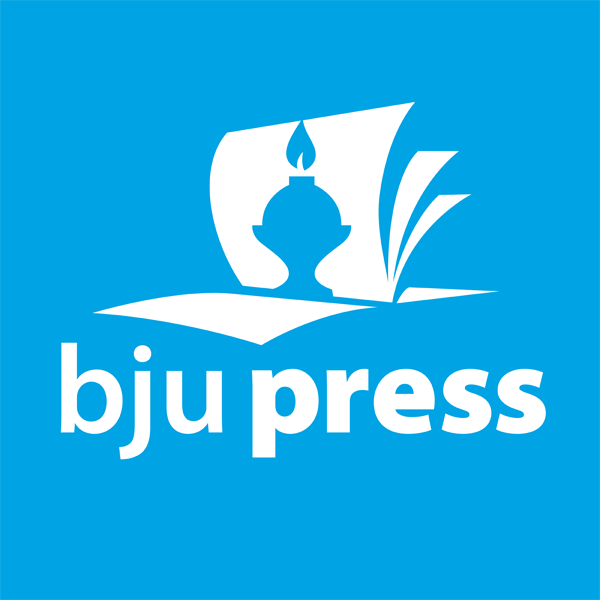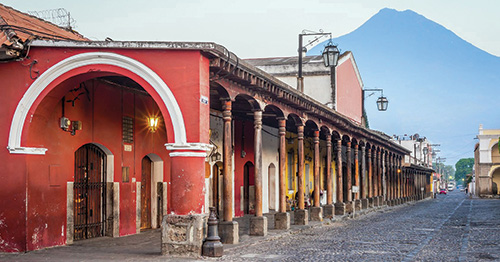BJU Press’s foreign language product lines equip students to engage in practical communication by using language in an active, cultural context. Students participate in regular practice through activities, puppets, read-aloud books, and audio files and build skills through listening, reading, writing, and speaking. These products support the development of proficiency from elementary up through the secondary years as they relate to students’ everyday lives, personal interests, and studies, and as they shape a biblical view of cultural engagement.
Vision
To equip students to engage in practical and meaningful Spanish communication with proficiency and cultural awareness.
Goals
- To develop level-appropriate interpretive, interpersonal, and presentational communication by using language functions within a meaningful context
- To develop vocabulary and linguistic structures needed for language acquisition
- To develop proficiency through exposure, comprehension, and language production
- To expose students to authentic texts in Spanish
- To build awareness and appreciation of Hispanic culture, including music, art, food, clothing, and literature
- To prepare students to apply a biblical worldview in cultural engagement
Program Approach for High School Spanish
The BJU Press high school Spanish program introduces students to language acquisition through active cultural contexts. The purpose of language learning is not to fulfill state requirements or pass a test, but to equip students to use a new language in their lives. That means helping them become functional and proficient in that language. The ¡Nuevos Amigos! program uses an innovative, research-based approach to help students learn the language in practical contexts instead of requiring memorization of mechanical rules and vocabulary. As students progress through the program, they will go from a novice level of proficiency to an intermediate-high level on the ACTFL (American Council on the Teaching of Foreign Languages) proficiency continuum. Teachers will have opportunities to immerse their students in language learning with listening activities, conversation practice, authentic texts, cultural features, and more. Ultimately, we want to equip students to engage and communicate with a new culture so that they can be ambassadors for Christ wherever they go.
Developing Interpretive, Interpersonal, and Presentational Communication
As beings created in the image of God, we have a unique ability of communicating through language. Acquiring new words and phrases takes place most effectively when words and structures are presented and practiced within a communicative context. The BJU Press high school Spanish program presents new words through conversations in activities, artwork, and listening sections. Rather than learning isolated words and structures, students explore new words through real-life examples. Spanish 1 introduces words through themes and situations such as making introductions and communicating in the classroom. In Spanish 2, students will learn new words with several friends as they have natural conversations. Students will also have opportunities to collaborate as they learn new words and structures together. Teachers can encourage students to take risks in acquiring Spanish skills by practicing with native speakers. Teachers may also select from a variety of written and oral assignments to develop students’ presentational skills.
Developing Vocabulary and Linguistic Structures
Using a target language often is the most effective way to acquire a new language. At the novice level, students will need to rely on basic vocabulary and scripts to begin using the new language. In ¡Nuevos Amigos!, we encourage students to develop rapidly so that they can begin communicating naturally in Spanish. Chapters introduce new vocabulary words at the beginning for immediate use, and activities require students to use those words and develop an understanding of the structure of the language. Vocabulary review at the end of chapters not only helps students to practice with new words but also helps them to develop good pronunciation. Additionally, notas léxicas in the teacher editions give teachers opportunities to expand on the students’ existing vocabulary with synonyms and unique meanings.
Developing Proficiency
Foreign language studies have very little purpose unless the student can become functionally competent with the language. To ensure students can use the language, not just perform well on a test, the BJU Press high school Spanish program focuses on developing proficiency by consistently exposing students to Spanish, encouraging comprehension, and then helping students to produce the language in written or verbal communication. As students progress in language learning, we provide more and more opportunities for students to interact with Spanish words and structures through listening activities and authentic texts. When they are ready to actively work with the material in new situations, they will develop their comprehension skills by negotiating meaning from context. To continue their development, we provide assignments and suggestions to help them use what they know in Spanish presentations and essays.
Exposing Students to Authentic Material
To prepare students for natural communication with native speakers, we focus on presenting them with authentic material. Material that has been created by native speakers for other native speakers—whether it is menus, event programs, posted signs, news articles, or native conversations— helps students learn how to communicate with words and structures that would not seem out of place outside of the classroom. However, in some cases, students need access to modified authentic material that matches their level of understanding but still appears natural to a native speaker. The BJU Press Spanish program primarily uses either authentic or modified authentic material.
Building Awareness and Appreciation of Spanish Culture
Learning a new language gives students a unique opportunity to study and learn about new cultures. Different cultures reveal to Christian students the richness and diversity of God’s creation, but they also reveal how culture impacts what we believe and value. In the ¡Nuevos Amigos! program, each chapter will feature a Spanish speaking region and its cultural practices, allowing students to explore Hispanic art, music, food, clothing, and literature.
Preparing Students to Apply a Biblical Worldview
In order to equip students to engage with another culture biblically, Christian language instruction should cover subjects, vocabulary, and cultural issues that will help students to speak biblical truth into another language and culture. We are not just equipping students to communicate in another language, but to function in another language in all areas of their lives. Students should be able to participate in public worship in Spanish, to witness and share their testimony in Spanish, and to participate in cultural practices that harmonize with a biblical worldview. There is a beauty to the diversity of God’s world, and Christians can celebrate the cultural artifacts that reflect that beauty. Expansión activities encourage students to dive deeper into cultural features and discuss the implications of different practices and beliefs. We want students to be able to connect biblically with Hispanic cultures, so we provide resources for students and teachers to help them relate content to a biblical worldview.







